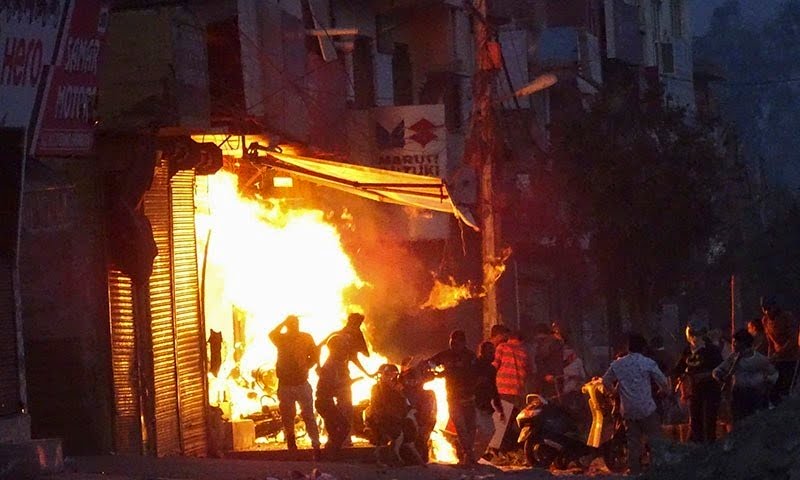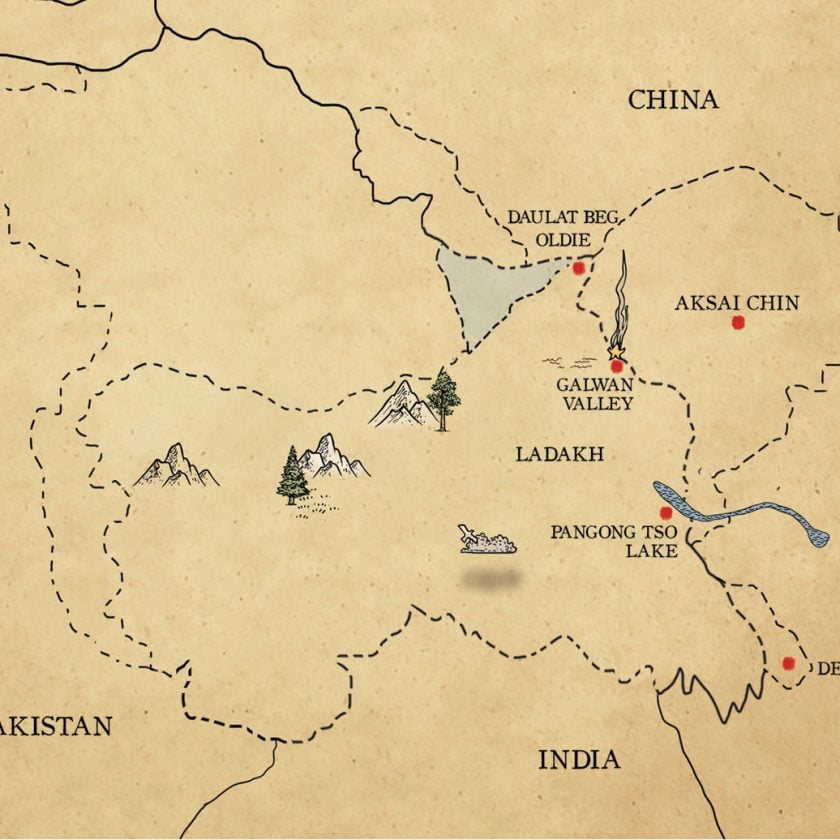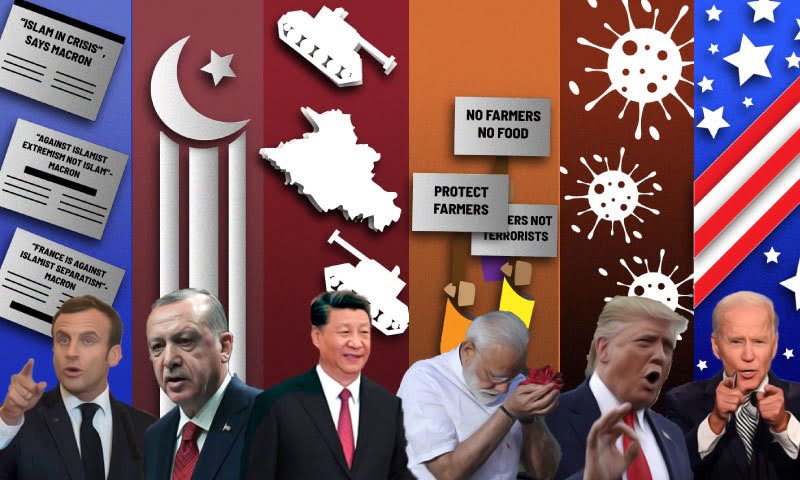Abstract:
Many of that is because of also with coronavirus epidemic that raged across the Dominating World News. Yet there have been other incidents, triggered not by Mother Nature, but by structural failures in government and social justice, that have attracted our eye. For the citizens of the US and India, it was a year of clashes and moments of collective contemplation as riots broke out against ethnic injustice in the former, leading to a revived Black Lives Matter campaign, and demonstrations continued against legislation deemed “discriminatory” that exploded in Delhi’s worst sectarian tensions in decades. For other nations, the year was about challenging the status quo, for example in Thailand, where the youth of today took to the streets seeking change. Conflicts along the regions were heavy with Indian and Chinese troops facing each other over the rugged mountain terrain of Ladakh, and Armenia and Azerbaijan going into conflict with the former ceding part of the contested territories of Nagorno-Karabakh. And coronavirus, which triggered havoc around the world, has made terms like separate channels and an epidemics part of daily vocabulary. However, the year also saw renewed efforts at peace and the creation of new ties between countries. Significant agreements have been reached, namely the US-Taliban Deal and the political settlement between several Arab states and Israel.
A Turbulent Relationship between the US and Iran:
Several days before the start year, a US attack on Baghdad’s international airport killed Iran’s top military officer, Qassim Soleimani, in a sudden escalation of conflict between the two nations. The US Army said that President Donald Trump ordered Soleimani’s “terrorism” after a pro-Iran mob sieged the US embassy. Trump said that Soleimani was meant to have been destroyed long ago. Iran’s Glorious Leader, Ayatollah Ali Khamenei, threatened to claim “claimed responsibility” for the death of Suleiman. Subsequently, Iran retaliated with a missile assault at an Iraqi air base where US troops were deployed. Hours later, on high warning, the Iranian forces wrongly shot down a Ukrainian passenger airliner leaving Tehran. Subsequently, Iran retaliated with a missile assault at an Iraqi air base where US troops were deployed. Hours later, on high warning, the Iranian forces wrongly shot down a Ukrainian passenger plane leaving Tehran.

Hostilities did never drain away as the year advanced. In September, the US arbitrarily announced that the UN crackdown was back in place a month after the attention vetoed the US proposal to prolong Iran’s weapons embargo. The asserting that “ Rouhani to warn the US of “viciousness” and to request that the Iranians should aim their frustration at the State Department. Nevertheless, after Joe Biden’s win in the US elections, Leader Rouhani’s government made strong signs of the anode, with the foreign ministry’s representative noting that the “murders” committed by the US against Iran do not preclude “thoroughly researched” exchanges from taking place. Iran’s foreign minister has urged Biden to abandon Washington’s “rogue” actions and lift debilitating sanctions. Biden, for his part, indicated that he would return the Us towards the 2015 nuclear agreement, which gave Tehran exemption from sanctions imposed in exchange for assurances checked by the UN that its nuclear capability has no strategic goals.
Social Distancing, Pandemic, Lockdown a Year defined by Coronavirus:
As the world entered a new decade, a sudden epidemic in China’s Wuhan, a region of 11 million people was gaining momentum. Originally assumed to be “viruses tuberculosis” Covid-19, as it was called, had spread to 3 nations by January 2020 and later to the rest of the world, hitting people living in the most isolated areas of the globe. More than 75 million individuals have been infected with the novel coronavirus and at least 1.6 million have lost their lives. It was probably the greatest health epidemic to have had an impact on the planet, making comparisons with the lethal Spanish Flu, and changing the way people lived, operated and interacted with others.

Countries who brought the epidemic “within command” saw new outbreaks in second or third waves, leading to renewed prohibitions and attempts to invent an appropriate vaccine. Even by end of the year, several firms have released reports of a clinical trial, including AstraZeneca, Sino pharm, Pfizer/Biotech, and vaccination programs conducted in several countries, the United States, Canada, and the United Kingdom. China and Russia have both begun to vaccinate unmanned aerial vehicles produced vaccines against their people.
Delhi has Seen the Worst Ethnic Warfare in Decades:
Over the last year, the agitation has been bubbling in India’s capital Delhi over controversial citizenship rules, the Citizenship ( Amendment ) bill Act, and the National Registry of Citizens, but it became a deadly turn on the eve of US President Donald Trump’s visit to the region.

At least 50 people were killed in the resulting protests that occurred on 26 February, the bulk of those were Muslims, and a number of mosques were ransacked. Hindu shops were also destroyed and at least 15 Hindus were killed. The foreign media accused Indian Prime Minister Narendra Modi of the unrest, and the New York Times claimed later this week that facts revealed that New Delhi police “cohesively moved toward Muslim people” and “tacitly supported Hindu gangs” as during violence.
US-Taliban Deal The Culmination of Decades of War?
The United States and the Taliban have been engaging in negotiations during 2019, but it was in March of last year that they reached a historic deal which many saw as an attempt to end the decades-old conflict in Afghanistan. Washington chief negotiator Zalmay Khalilzad and Taliban political chief Mullah Abdul Ghani Baradar signed the agreement in Doha, Qatar, as US Secretary of State Mike Pompeo experienced the cabinet meeting. Under the deal, the US will remove all its forces from Afghanistan within two weeks, whereas the Taliban pledged themselves to sever relations with militant groups and counter extremism.

In September, following a pause of several months due to disagreements about the release of hostages, negotiations between the Afghan Government and the Taliban officially began in Qatar, reaffirming their adherence to the deal with the US. However, the talks were again delayed by disputes about which understanding of Islam would be used to frame laws in post-conflict Afghanistan and escalated aggression, contributing to concerns that America’s decision to remove its troops would come too soon. Earlier this month, the sides declared a tentative resolution laying out the grounds for future talks and a formal truce. The talks were also held until January 5, 2021.
India, China and an Elevated Clash:
Frictions among India and China, both atomic nations, took a deadly turn in June after combat in the supersonic speeds area of Ladakh killed 20 Indian soldiers, the deadliest battle in decades here between two neighbors that share a long frontier. Military officials from both sides held a series of talks to try to alleviate tensions, but they stayed strong, with both China and India threatening each other with provocations and crossing the contested frontier into the territories of the other. Tension along the frontier led to the boycott of Chinese goods by Indian residents. Social media videos have seen Indians purposely destroying their made-in-China gadgets in a show of frustration.

The Indian government has also blocked dozens of Chinese applications, saying they are violating the “unity and independence of India” Since May, Indian and Chinese leaders have known at least eight times, but there’s seems to be little or no improvement in overcoming the dispute.
Erdogan is Blowing up Macron’s Policies:
Sectarian tensions came to light again in France this year, after a teacher had been decapitated for revealing the drawings of Prophet Muhammad (PBUH) in university. Following the incident, French President Emmanuel Macron vowed not to give up the sketches and launched a strategy to fight ‘extreme Islam’ in the region. His remarks have provoked worldwide indignation and widespread demonstrations in Muslim countries. Hundreds of thousands of people took to the streets of Pakistan, Afghanistan, Bangladesh, Lebanon, and Gaza asking for a boycott of French goods. Muslim politicians, including Prime Minister Imran Khan, Malaysia’s Mahathir Mohamad, and Turkish President Recep Tayyip Erdogan, all condemned Macron’s remarks.
Erdogan hit out around Macron, claiming he should be given “mental tests” to “treating millions of members from different faith groups this way” Ties here between leaders were also influenced by disputes over the Greek-Turkish conflict in the Mediterranean and the rivalry between Armenia and Azerbaijan. Things started to intensify after Charlie Hebdo released Erdogan’s caricature, which Turkey called a “disgusting attempt to spread its cultural hatred and racism” Macron later tried to ease the tensions with the Muslims, stated in an interview that he understood why and how the illustrations could be “shocking” but that “terrorism can never be explained” A month ago, Erdogan said that Macron was a “trouble for France” and shared the expectation that the nation would “get rid of Macron distress as quickly as possible” In December, the French cabinet passed the bills to tackle “radical Islam” which Erdogan said were “safe aggression”.
America Bids Adieu to Trump:
After a grueling month-long election battle, former Democratic Vice President Joe Biden was elected the new President of the USA on Nov 8, five days after the election day. Republican President Trump declined to admit that Biden had “falsely posed” as the winner, claiming election fraud. Since then, Republican politicians have filed several petitions and litigation to try to discourage Biden from coming to power, which has been dismissed by the courts. For his part, Biden, during his first speech as President-elect encouraged solidarity, said to the millions of people who voted for Trump, “Allow offer one another a shot.” Even after US election officials said there was no proof of electoral theft or compromised votes, Trump declined to admit, and demonstrations broke out again in the US, with Republicans and Democrats clashing and a few stabbings registered. One Republican leader has indicated that pro-Trump states should secede.

On December 15, the US Electoral College, in a country referendum, confirmed Biden’s victory. He’s going to reach the White House on Jan 20, Inauguration Day.
Down with the Monarchy, Youth-Led Rally in Thailand:

As the coronavirus epidemic destroyed Thailand’s economy and fueled political turmoil, thousands of students filled the streets in July, joined by citizens of all ages and segments of society, against former Army Chief Prayuth Chan-administration. OSHA’s Among their requests was the deposition of Chan-Ocha, the re-writing of the constitution in 2017, the end of harsh royal defamation rules, and broad changes to the monarchy. As demonstrations escalated, the police used riot gas and water cannons, injuring several demonstrators. Others had been convicted under the Royal Defamation Act and faced up to 15 years in prison, but the demonstrators appeared undeterred. In December, one of the protest organizers, lawyer Arnon Nampa, said that the demonstrators had taken a break and would return after New Year’s holidays more vigorously and in greater numbers.
Farmers’ Protest in India and Beyond:
Farmers in India are now demonstrating for weeks after Narendra Modi’s Bharatiya Janata Party (BJP) state enacted legislation which would lead the government not to purchase grain at assured rates and allow farmers to actually trade with corporations. Farmers protested that the proposed regulations would make them more vulnerable to corruption, with most of them owning shares less than five acres, since it would be impossible for disadvantaged farmers to bargain with big buyers. The demonstrations, which initially began in Punjab and Haryana but then moved closer to Delhi, also drew foreign support for the Sikh immigrant community in countries such as the United Kingdom, Australia, Canada, and the United States.

Six stages of talks were held here between the government and the growers, with the Minister of Agriculture saying that the test content in which the government sets prices will proceed. Also, the government was “prepared to pursue” any additional complaints from the farmers, he added. Protests have erupted in recent days, with growers going on a general strike and urging to start a tractor-trolley march to New Delhi.
Reference:
Source
- Published in DAWN 28 December,2020

